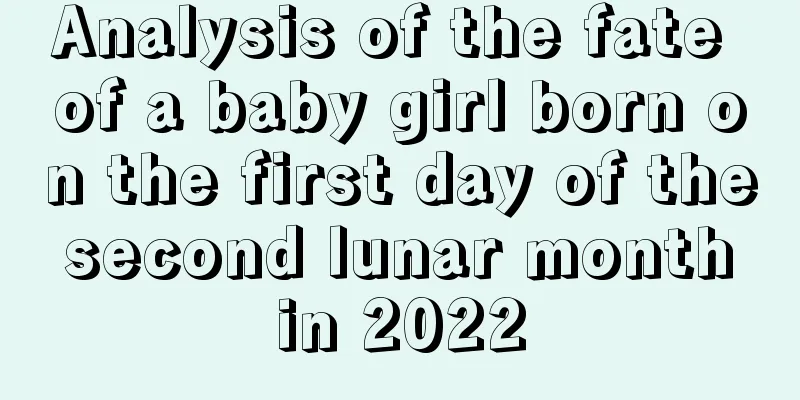Why do we eat dumplings on the fifth day of the first lunar month? The meaning of eating dumplings on the fifth day of the first lunar month

The first month of the lunar year in China also has its own traditional food. So, let’s take a look at why we eat dumplings on the fifth day of the first month of the lunar year? An introduction to the meaning of eating dumplings on the fifth day of the first lunar month. After the Spring Festival, the various festivals in the first month of the lunar calendar will soon follow. Following the 2021 first month special topic of Shuimoxiansheng.com, let’s count how many important traditional festivals and customs there are in this month.Why do we eat dumplings on the fifth day of the first lunar month?In addition to eating dumplings for the New Year’s Eve dinner, dumplings are also eaten on the fifth day of the first lunar month, which is called “Po Wu”. There is a saying that there are many taboos from the first to the fifth day of the New Year, and people should not "act rashly". After the fifth day, the New Year is basically over and there are no more taboos, so people have to eat dumplings to celebrate. What is special is that in today's Tianjin and nearby areas (such as Cangzhou City), there is still a custom of "making dumplings and pinching the mouths of villains", which is said to make the villains shut their mouths and say less bad things in the coming year.The meaning of eating dumplings on the fifth day of the first lunar monthMeaning 1:There are many taboos from the first to the fifth day of the New Year, and people are not allowed to "act rashly". After the fifth day, the New Year is basically over and there are no more taboos, so people eat dumplings to celebrate. Meaning 2: In today's Tianjin and nearby areas (such as Cangzhou City), there is still a custom of "making dumplings and pinching the mouths of villains", which is said to make the villains shut their mouths and say less bad things in the coming year. Meaning three: On the fifth day of the first lunar month, people welcome the God of Wealth and eat dumplings in the shape of ingots, which symbolizes getting rich. The dumplings made on the "Po Wu" festival are made with meatballs as the filling and are flat and round in shape, very similar to the ingots that symbolize wealth. In addition, some dumplings are filled with money, dates, sugar, etc., which symbolize getting rich, good luck, sweetness and beauty. The whole family gets together to eat dumplings on the fifth day of the Po Wu festival, which means that they can increase their wealth and live a better life in the new year. Should we send away poverty on the fifth day of the first lunar month?Yes, there is also a traditional custom of sending away the poor on the fifth day of the first lunar month. “Sending away the poor” on the fifth day of the first lunar month is a very distinctive seasonal custom among the ancient Chinese people. On this day, each family makes a woman out of paper, called "Sunshine Sweeping Lady", "Five Poor Women", or "Five Poor Lady". She carries a paper bag on her back and sweeps the dirt in the house into the bag, which is then sent outside the door to be blown up with firecrackers. This custom is also known as "sending away the poor soil" or "sending away the poor wife". In Hancheng, Shaanxi, people are forbidden to go out on the fifth day of the New Year. Instead, they roast fresh meat in a pan and stir-fry dried potatoes until they crack and make noises. They believe that this can help get rid of poverty and bring in wealth. In addition, in the old days, people would eat especially well on New Year’s Eve or the fifth day of the first lunar month, commonly known as "filling the poverty pit." The widely popular custom of sending away poverty among the Chinese people reflects the traditional mentality of the Chinese people who generally hope to bid farewell to the old and usher in the new, to bid farewell to the poverty and hardship of the past and to welcome a better life in the new year. |
Recommend
What day is the seventh day of the eighth lunar month in 2017? What month and date is it?
August ushers in the golden autumn season. This i...
What day is the second day of the seventh lunar month in 2017? End of Heat solar term?
Introduction: In the blink of an eye, the seventh ...
Why is the Chinese Valentine’s Day called the Qiqiao Festival? Three ways to beg for skill
The Qiqiao Festival is one of the many nicknames o...
Is the Autumnal Equinox in 2020 a good day to get married? What is the meaning of the Autumnal Equinox when day and night are equal?
Introduction: It is necessary to choose an auspici...
Is November 21st of the lunar calendar 2019 a good date?
Is November 21st of the lunar calendar 2019 a goo...
What should we do and avoid on September 20th of the lunar calendar in 2020? What are the taboos?
What should we do and avoid on September 20th of ...
Is the Chinese Valentine’s Day on the seventh day of the seventh lunar month in 2019 an auspicious day for signing a contract?
Qixi Festival is a traditional Chinese folk festiv...
What are the do's and don'ts on December 21st of the twelfth lunar month in 2021? Is it suitable for ancestor worship and tomb sweeping?
The twelfth month of the lunar calendar is the end...
Is it a good day to start renovation on the second day of the fifth lunar month in 2020?
Chinese people have always paid attention to the r...
Is today, the third day of the fourth lunar month in 2019, an auspicious day for relocating graves?
Introduction: Every day has its good and bad luck,...
Check the lunar calendar for December 25, 2018. Is it a good day?
Shui Mo Xiansheng website has carefully compiled ...
List of the lucky god's directions for the seventh day of the twelfth lunar month in 2020
The twelfth month of the lunar calendar, commonly...
Feng Shui Story - Legend of Zhuge Liang's Tomb
Speaking of Feng Shui stories, I believe everyone ...
Is it auspicious to sign and open a business on the second day of the eleventh lunar month in 2018?
The eleventh month of the lunar calendar is the mo...
What are the customs for the 24th day of the twelfth lunar month in 2017?
Introduction: There are many festivals in the twel...









